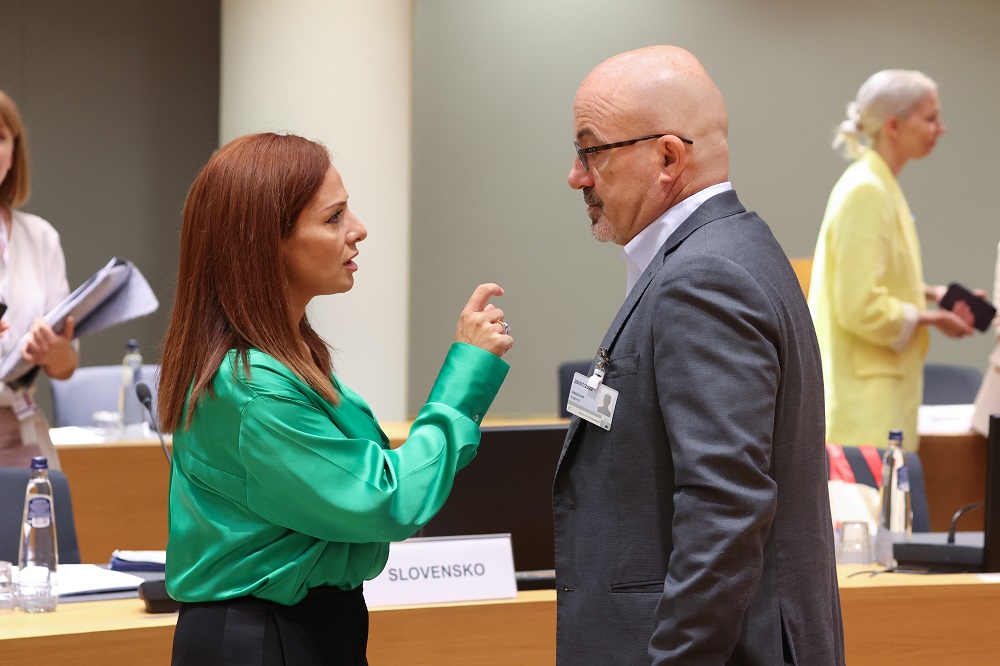Malta has secured an exemption from a European Commission’s regulation that introduces mandatory reductions of 15 per cent for gas use by member states in case of security of supply emergencies, the Energy Ministry said in a statement on Tuesday.
During an extraordinary meeting of the Energy Ministers today in Brussels, Energy Minister Miriam Dalli presented Malta’s case as an island member state that is disconnected from the European gas network. She strongly upheld that in Malta’s specific situation, where switching of fuels is not a viable option, such a mandatory reduction would be detrimental for both households and businesses.
Unlike many of the EU’s member states, Malta is not connected to the EU’s gas network and its use of LNG is exclusively restricted for electricity generation. In fact, the island receives deliveries based on a committed pre-determined schedule of shipments through a gas supply agreement.
“We stand united together with the rest of the EU in sending a strong signal of solidarity and cooperation to safeguard our citizens and ensure security of supply. Even though Malta is exempt from a mandatory reduction of 15 per cent in reducing its gas use, we will continue working hard to increase our share of renewables and incentives for businesses and households, to promote a switch to energy efficient operations and renewable energy models”, Minister Miriam Dalli said.
Six days ago, the European Commission proposed a blanket mandatory target for all EU countries to cut gas use by 15 per cent from August to March, compared with their average consumption in the same period during 2016-2021. The so-called ‘Union Alert System’ would turn a voluntary reduction into a compulsory action.
“Not having access to distributed gas does not mean that Malta is immune to the financial costs experienced across Europe. We need to continue to act because definitely this is not a ‘business as usual’ situation”, Minister Miriam Dalli insisted.
Malta partially relies on Italy to meet its electricity demand. Prices have soared to what—until recently—would have been unimaginable levels of €650 per megawatt hour, driven by the price of gas.
“It is crucial to provide a strong market signal to defuse the present upward spiralling of gas prices which is reflected in electricity prices. Any changes at the EU level will impact us directly particularly in a scenario where we are experiencing high and volatile energy prices even though the Maltese Government is continuing to support households and businesses to maintain stable energy prices”, Minister Dalli added.
Minister Dalli maintained that the realities that we are facing today show the importance of completing both hydrogen ready and electricity networks to the EU as a matter of urgency. Malta is currently working hard to ramp up its share of renewables and shift towards clean energy.
Whilst households are encouraged to switch to renewables, solar water heaters and heat pumps and replace existing appliances and equipment with more efficient ones, the industry is likewise supported through targeted financial help investments in energy efficient equipment and energy savings solutions.
Minister Miriam Dalli also reiterated the call for EU funds to support innovative renewable energy projects across, including the Mediterranean, to tap in innovative floating technologies.
“The priority should be to switch as fast as possible to renewable sources of energy that can provide us with cleaner alternatives and autonomy. This is challenging but we are adamant to move in this direction”, Minister Dalli remarked.
Annual STI testing for non-EU massage therapists amounted to ‘slander,’ admit health authorities
Health authorities kept quiet about changes to the legal provisions
KM Malta Airlines announces extra flights and special fares for MEP and local council elections
To qualify for special fares, all travel needs to take place into and out of the same city
European Parliament adopts regulation making it easier for companies to be paid on time
The maximum credit term under the new Late Payment Regulation is to up to 120 days, for some sectors






